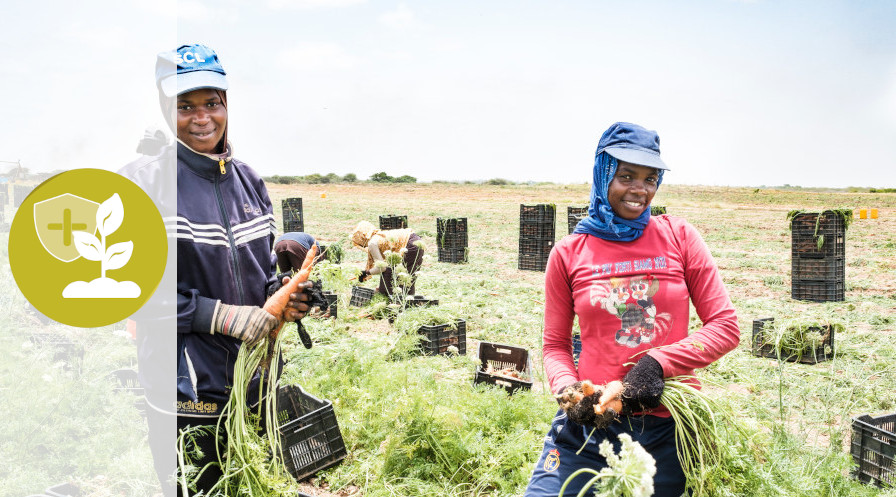
Organization, missions and operation of an NPPO (Intermediate level)
Estimated duration : 9h30
The intermediate level of Route 7 (Organization, missions and operation of an NPPO) consists of four activities. Each activity includes a text to read, followed by a test comprising a few simple questions to measure your mastery of the subject. At the end of the intermediate level, a summary test will be offered to you. Its results will determine your access to the advanced level.
First, we will see that, in the context of international trade, intergovernmental agreements and international conventions (such as the International Plant Protection Convention or IPPC) set standards for human and animal health.
To ensure compliance with these rules, which allow States free access to the market, each signatory to the IPPC must set up and finance a National Plant Protection Organization (NPPO), whose missions will be explained to you. We will examine in depth the functioning of an NPPO, including its obligations in terms of pest surveillance, verification and certification of exports and imports.
The final part of the intermediate level will address the benefits of involving stakeholders in NPPO activities and their awareness of the challenges of pest management. This will include the role of stakeholders in pest risk analysis, pest surveillance, the establishment of pest free or low pest prevalence areas, inspection, certification, eradication programmes and contingency plans.
The texts presented in this course are taken from IPPC Guides, the text of the International Plant Protection Convention and the International Standards for Phytosanitary Measures. Consult the website: www.ippc.int

Organization, missions and operation of an NPPO (Advanced level)
Estimated duration : 9h30
The advanced level of Route 7 (Organization, missions and operation of an NPPO) consists of four activities. Each activity includes a text to read, followed by a test comprising a few simple questions to measure your mastery of the subject. At the end of Route 7, a summary test will be offered to you. Its results will determine your access to the certification test.
We will first present one of the most important missions of the national plant protection organization (NPPO): pest surveillance. Surveillance is an obligation for an NPPO and an essential element of the national phytosanitary system. It therefore plays a key role in the overall mandate of the NPPO. We will see the two types of surveillance systems and their value: general surveillance and specific surveys.
We will then see how to organize a high-performance diagnostic service. The NPPO must have a laboratory, either public or private, to be able to identify pests with certainty. The ability to provide accurate and timely diagnostic services and to report the results of these diagnostics is of crucial importance for the functioning of an NPPO and for the implementation of the IPPC. The identification of diseases, insect pests, nematodes, etc. is essential in the context of import and export certification. The principles of sustainability, organization and quality management in a diagnostic laboratory will be detailed.
We will then move on to export certification. The NPPO is empowered to issue "Phytosanitary Certificates" in accordance with the IPPC and only the NPPO has the authority to prevent the export of consignments that do not meet the importing country’s phytosanitary requirements. The issuance of Phytosanitary Certificates indicates that the plants and plant products have been inspected and/or tested according to appropriate official procedures and found free from quarantine pests.
Finally, we will conclude this section by discussing the role of the NPPO in market access. It is the NPPO that sends a written request to its counterpart in the importing country and collects all the required information that will help the latter to identify possible phytosanitary risks associated with the imported products concerned. We will see that the NPPO will need to work closely with a team of experts to develop a work programme for making a formal application for access to the importing country's market.
The texts presented here are taken from IPPC Guides, the text of the International Plant Protection Convention and the International Standards for Phytosanitary Measures. Consult the website: www.ippc.int

